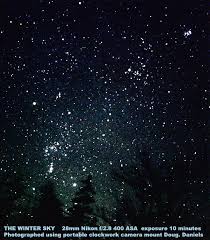 Advent 1-C November 29, 2009
Advent 1-C November 29, 2009Jeremiah 33:14-16
Psalm 25:1-9
1 Thessalonians 3:9-13
Luke 21:25-36
Watch out! It’s Advent! Jesus is coming – and what will he find? Will we be ready?
During these weeks before Christmas, the church directs our reading of the Bible and our prayers to what it means to get ready for the birth of Jesus. It’s a time of anticipation – of being ready on the balls of our feet, the tips of our toes.
Poems about this time of the year, this Advent of watching and waiting, emphasize the changes in the world around us. “Darkness and snow descend,” one poet[i] writes. And another describes how raw the weather can be in December, and perhaps how well it describes the spiritual state we are in these days:
With sea-like sounds in our Scotch fir,
It's dark at breakfast, dark at tea,
And in between we only see
Clouds hurrying across the sky
And rain-wet roads the wind blows dry
And branches bending to the gale
Against great skies all silver pale[ii]
Our lessons, again, talk to us about the end of time. We read again of the apocalypse, about the coming of the day of the Lord. Our culture surely is full of fearful images of these end days. I mentioned a few weeks ago the movie “2012.” There is another one, “The Road,” about a father and son who wander a devastated earth and find not one shred of humanity or hope.
Perhaps such images are what we can expect from a culture as bloated as ours is – bloated with greed and consumerism and one-upsmanship. When we fear that we will lose everything when God comes, who would not be terrified?
But if we look at the prospect of the end times from the other side of history, we get a different set of feelings. The people who have lost their retirement savings in the stock market crash, or the families who have had to move out of their foreclosed homes, or the parents who mourn the loss of their children to gunfire or war or accidental death, surely anyone who has had to live for even a short time in a homeless shelter – these people might see the end of the world as we know it rather differently. I think such experiences can lead us to understand the “end time” not as destruction but as transformation. A world that is unjust is transformed into one that is abundant, with plenty of food and homes and health for all. A world of community and hope and fulfillment. “Surely the days are coming.” Jeremiah reminds us as he reminded the people of Israel many centuries ago, when there will be justice and righteousness in the land, and when the people will live in safety.
Advent is the time to repent. In a few weeks, we will read the words of John the Baptist saying just that. When the Bible says, “Repent,” it does not mean punishment or retribution; it means change. It means turn around. Turn around your head, your heart, your whole way of life. During this time of repentance, the old way of life – of greed, selfishness, false anger, violence – is what comes to an end, as we wait in hope for this new world that is breaking into life with the birth of Jesus.
Now, there are a lot of things wrong with this world, a lot of repentance that needs to happen, and most of that we as individuals cannot affect. We can’t change the war in Iraq, or stop gang violence, or build enough houses to get everyone off the streets. We can only turn around our own personal heads, hearts, bodies, Our Advent repentance has to start here. This is where we get ready for the birth of Jesus. Here. In our hearts, where we live.
But let me tell you something else: God is big. God can take on this world, and the season of Advent is about hope that God is doing just that – and about God’s dream not only for this transformed world, but for how you and I, each of us, right where we are, start working for this transformation right here and now – that we start living as though we really believed that God comes among us as one of us, to show us that there is a better way for us to live, here and now.

It is hard, living in a city as we do, to look up into the night sky and see the stars. Last night, in the early evening anyway, the brightness of the moon cut through the darkness, a moon so bright it could have been seen in Times Square. To even our jaded, urban eyes, focused as we are on our own problems, or on the heartbreaking state of the world we live in, to even our jaded eyes, looking up into the Advent sky, it’s a sign.
born to set thy people free;
from our fears and sins release us,
let us find our rest in thee.
[i] W. H. Auden, For the Time Being
[ii] John Betjeman, “Advent 1955”






.jpg)
.jpg)







.jpg)
